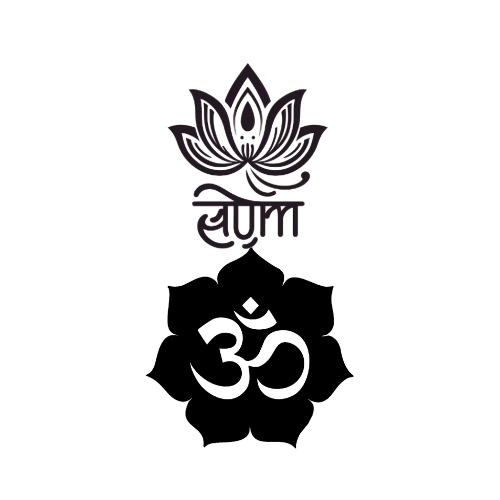Niyama in Yoga: Personal Discipline in Patanjali’s Eightfold Path
In Patanjali’s Yoga Sutras, Niyama represents the second limb of Ashtanga Yoga (Eightfold Path). While the yamas focus on ethical interactions with others, niyama emphasizes self-discipline and personal practices that promote inner growth and spiritual well-being. Together, they establish the foundation for a balanced and harmonious life, preparing the practitioner for deeper levels of meditation and self-realization.
This article explores the meaning, components, significance, and practical applications of niyama, highlighting its role in modern yoga and daily life.
1. Introduction
Patanjali’s Yoga Sutras provides a systematic framework for achieving spiritual liberation (kaivalya), starting with ethical and personal disciplines. The niyamas (observances) are essential for cultivating inner purity and self-discipline. By integrating niyama into daily life, practitioners create the conditions for mental clarity, emotional resilience, and spiritual growth.
2. Definition and Meaning of Niyama
2.1 Etymology and Philosophical Significance
The term niyama is derived from the Sanskrit roots ni (inward or within) and yama (restraint or control). It refers to internal practices and disciplines that regulate personal behavior, promoting self-awareness and spiritual harmony.
2.2 The Universal Applicability of Niyama
Patanjali emphasizes that the niyamas are universal practices applicable to all individuals, irrespective of their background or beliefs. They transcend cultural and religious boundaries, serving as guiding principles for personal transformation.
3. The Five Niyamas
3.1 Shaucha (Cleanliness)
- Meaning: Purity of body, mind, and surroundings.
- Philosophical Context:
- Cleanliness extends beyond physical hygiene to include mental purity, such as removing negative thoughts and emotions.
- Vyasa’s commentary on the Yoga Sutras highlights that shaucha prepares the mind for concentration and meditation.
- Application:
- Practice daily hygiene and maintain a clean living environment.
- Engage in mental cleansing through mindfulness and meditation.
3.2 Santosha (Contentment)
- Meaning: Acceptance and contentment with one’s circumstances.
- Philosophical Context:
- Santosha is the practice of cultivating gratitude and inner peace, regardless of external conditions.
- Application:
- Reflect on positive aspects of life to develop gratitude.
- Avoid comparing yourself to others, focusing on personal growth instead.
3.3 Tapas (Self-discipline)
- Meaning: Discipline and perseverance in spiritual practices.
- Philosophical Context:
- Tapas refers to the “heat” generated through effort and commitment to overcoming obstacles.
- It emphasizes consistency in yoga practice, meditation, and ethical living.
- Application:
- Set realistic goals for daily yoga or meditation and stick to them.
- Cultivate resilience by embracing challenges as opportunities for growth.
3.4 Swadhyaya (Self-study)
- Meaning: Study of the self and spiritual texts.
- Philosophical Context:
- Swadhyaya involves self-reflection and the study of sacred texts, such as the Bhagavad Gita or Yoga Sutras, to deepen spiritual understanding.
- Application:
- Dedicate time to journaling and reflecting on thoughts and actions.
- Read and contemplate spiritual or philosophical writings regularly.
3.5 Ishwara Pranidhana (Surrender to the Divine)
- Meaning: Surrendering ego and actions to a higher power (Ishwara).
- Philosophical Context:
- Ishwara Pranidhana fosters humility and trust in the divine will, reducing attachment to outcomes.
- Application:
- Practice gratitude and devotion through prayer or chanting.
- Reflect on the impermanence of life and let go of ego-driven desires.
4. Significance of Niyama
4.1 Role in Purifying the Body and Mind
- Niyama disciplines cleanse impurities and remove distractions, creating a balanced foundation for deeper meditative practices.
4.2 Connection to Higher Stages of Yoga
- The niyamas bridge external ethical practices (yamas) and internal meditative techniques (e.g., dhyana and samadhi).
- By practicing niyama, practitioners develop self-awareness and inner harmony, essential for progressing to higher stages of yoga.
5. Practical Application of Niyama
5.1 Techniques for Practicing Each Niyama
- Shaucha:
- Begin each day with a cleanliness ritual, including bathing and tidying your environment.
- Use mindfulness techniques to declutter negative thoughts.
- Santosha:
- Practice daily gratitude journaling to focus on positive experiences.
- Pause and take deep breaths when faced with challenges, reminding yourself to accept the present moment.
- Tapas:
- Establish a regular yoga or meditation routine.
- Persevere in the face of distractions or difficulties, using them as opportunities for growth.
- Swadhyaya:
- Dedicate time each week to self-reflection through journaling or dialogue.
- Study scriptures or spiritual teachings to expand your understanding.
- Ishwara Pranidhana:
- Chant a mantra or practice prayer to cultivate a sense of surrender.
- Reflect on the transient nature of life to foster detachment and humility.
5.2 Overcoming Challenges in Applying Niyama
- Consistency:
- Start small by incorporating one niyama at a time into daily life.
- Balance:
- Avoid rigid adherence; instead, adapt the practices to fit your individual lifestyle.
6. Relevance of Niyama in Modern Life
6.1 Contributions to Personal Growth and Emotional Well-Being
- Niyama fosters resilience, self-awareness, and inner peace, contributing to improved mental health and emotional stability.
6.2 Application in Contemporary Contexts
- Shaucha: Encourages sustainable living and environmental awareness.
- Santosha: Helps combat materialism and promote contentment in a consumer-driven society.
- Tapas: Inspires discipline in pursuing personal and professional goals.
- Swadhyaya: Supports lifelong learning and introspection.
- Ishwara Pranidhana: Encourages humility and detachment in a fast-paced, success-oriented world.
7. Conclusion
The niyamas form an integral part of Patanjali’s Ashtanga Yoga, offering practical tools for self-discipline and spiritual growth. By cultivating cleanliness, contentment, self-discipline, self-study, and surrender, practitioners establish a foundation for inner peace and self-awareness. These principles remain profoundly relevant in modern life, guiding individuals toward harmony, mindfulness, and resilience in the face of life’s challenges.
8. References
- Iyengar, B.K.S. Light on the Yoga Sutras of Patanjali.
- Satchidananda, Swami. The Yoga Sutras of Patanjali: Commentary on the Raja Yoga Sutras.
- Desikachar, T.K.V. The Heart of Yoga: Developing a Personal Practice.
- Mohan, A.G. Yoga for Body, Breath, and Mind.
- Vyasa’s Commentary on the Yoga Sutras.

.png)
.png)
.png)


.png)
.png)
.png)
.png)
.png)
